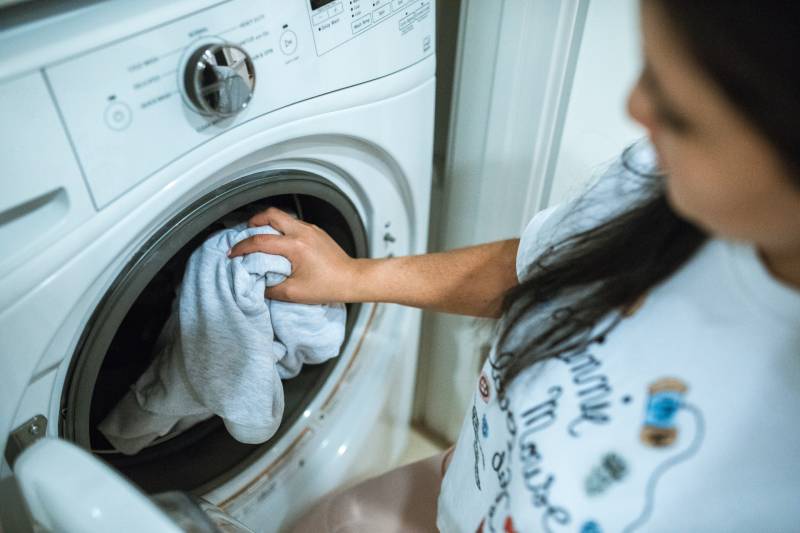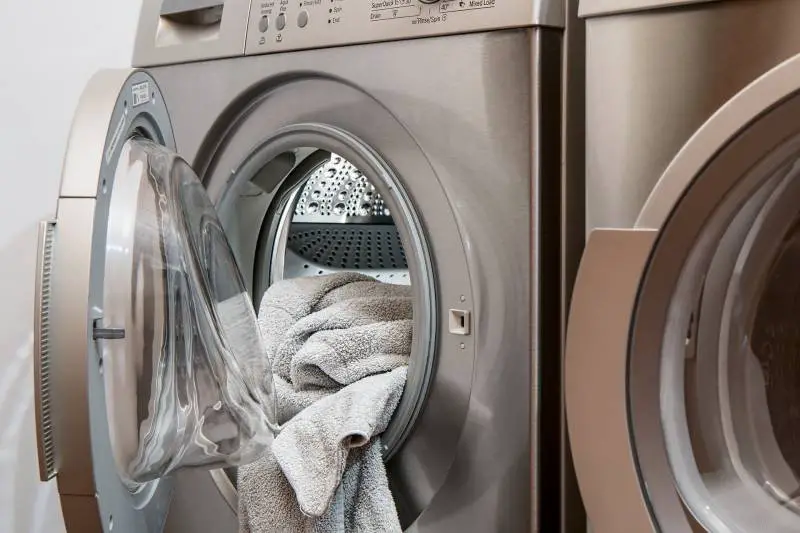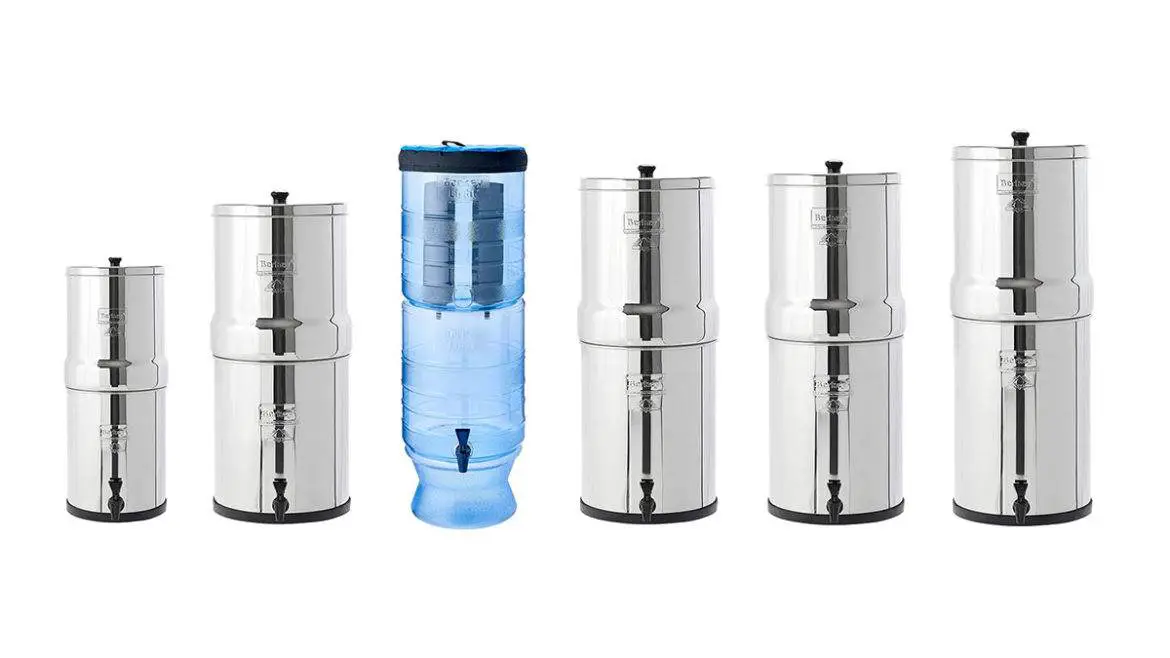Table of Contents
Many people prefer washing clothes with warm water instead of cold water. This is because warm water gets the job done faster, kills more germs, and removes molecules faster.
However, cold water has several advantages over warm water. For instance, it reduces the energy bill and keeps the preserves the environment.

In this article, we’ve highlighted all the main reasons why you should wash your clothes with cold water instead of warm water.
The Advantages Of Washing Clothes In Cold Water
Clothes Last Longer
First and foremost, washing your clothes in cold water makes them last longer. This is because the cold water helps slow fading of colors and shrinking in some fabrics. On the other hand, warm water speeds up fading, more so, darker colors.
The main reason why warm or hot water makes clothes fade is because of the heat. The heat in warm water breaks down dyes and also makes the clothes shrink. Hence, if you wash clothes in cold water, they will maintain their color and last longer.
Clothes Retain Their Size And Shape
One of the advantages of using cold water to wash clothes is that they won’t shrink excessively or lose their size. Besides, since your clothes won’t shrink a lot like when you use warm water, you will not be required to purchase new clothes faster than when using warm water.
On top of that, you can relax knowing that your clothes won’t lose their shape or size. Therefore, you will end up wearing the clothes for longer than when you use warm water.
Save Energy Bill
Another advantage of using cold water instead of warm water is that you will save your energy bill. This is because you won’t be heating water to wash the clothes. It’s estimated that washing machines use around 75 to 90 percent of energy to warm up the water.
On the contrary, if you use cold water, you won’t have to set your washing machine to 75 degrees F. Instead, you will only need 60 degrees F to clean them properly. As a result, you will end up saving a lot and lowering your electricity bill.
Reduce Wrinkles
When you use warm water to wash clothes, you should be ready to deal with wrinkles. However, that’s not the case if you use cold water. Since the wrinkles will be fewer, you will require less time to iron your clothes than a person who used warm water to clean their clothes. So, you will save some energy.
Prevent Some Stains From Setting Into Some Fabrics
If you use warm water to remove some stains, you may notice them setting into the fabric. This includes grass, sweat, blood, and makeup stains. Protein stains cannot be removed from clothes using warm water.
But when you use cold water, such stains won’t set in the fabric and become permanent. Therefore, your clothes will hold their value for a long period.
Apart from that, cold water prevents clothes from fading and transferring color to other garments while cleaning. This is not the case with warm or hot water.
Preserve The Environment
If you care about the environment, then you should use cold water. The level of microfiber pollution produced when using warm water is a lot than when using cold water. These particles may find their way into streams, lakes, rivers, and aquatic animals may confuse them for food.
Additionally, cold water does not use a lot of energy. Thus, you will be preventing lots of carbon dioxide emissions from getting into the environment every year.
The Disadvantages Of Washing Clothes In Cold Water
Challenging To Wash Some Fabrics – Knits And Synthetic Fabrics
Apart from cold water not being effective for cleaning clothes, it can be difficult to remove some stains. For instance, removing stains from synthetic and knits fabrics is quite challenging.
So, if you want to clean a cloth made of nylon, rayon blends, or polyester, you should stay away from cold water as you won’t get the results that you want.
Poor Sanitizing
Unlike warm water, cold water does not sanitize or kill germs effectively. Therefore, if you want to get rid of germs, cold water won’t do the job very well. Instead, you will be forced to use warm water to kill germs and stop contamination to other clothes during cleaning.
So, even if you want to save energy or preserve the environment, you may be forced to use warm water once in a while to avoid germs spreading. After all, germs are everywhere in the house.
The Detergent May Not Perform Well
Most detergents will not do well in cold water. Hence, the clothes won’t be sparkling clean if washed under such conditions. As a result, you will have to use either warm or hot water to allow the detergent to mix properly.
And if you must use cold water in cold climates, you should stick to liquid detergents only, as most powdered detergents will not work well. What’s more, you may have to pretreat stains before putting them in the washing machine.
Not Ideal For Cleaning Excessively Soiled Clothes
If you have heavily soiled clothes, cleaning them in cold water is a bad idea. This is because the clothes will not clean well enough, and removing stains will be somewhat challenging. Nevertheless, if you use warm water, dirt and stains from such clothes will disappear faster.
Some of the clothes you shouldn’t wash in cold water include dirty linen & towels, socks, soiled work clothes, bedding, white garments, and underwear. If these clothes are heavily soiled, washing them in cold water may leave some stains behind.
It Takes More Time To Clean Clothes
Since cold water molecules are slow, it will take you more time to clean your clothes than if you used warm water. Besides, cold water molecules scrub dirt and stains much slower compared to hot water molecules.
How To Tell Whether To Wash Cloth In Cold, Warm, Or Hot Water?
Knowing which water temperature to use will result in having a clean and properly maintained cloth. Most washing machines offer different settings so that you can wash clothes at the right temperature. This is because some fabrics, stains, and dirt do well under specific temperatures.
If you want to clean linens and white clothing, hot water is the best option. It will remove heavy soil and germs in these clothes. Also, it is good at removing dirt and any contamination that may be in the clothes.
But if you’re not sure whether the clothes need warm or cold water, warm water is the best option. Most washing machines mix 50 hot and 50 cold water to deliver warm water.
However, others mix a ratio of 60 to 40. Note that warm water is the best for jeans and permanent press materials. This is because it cleans without fading clothes like hot water.
Finally, use cold water for delicate and bright-colored clothes. Clothes that fade in hot or warm water won’t fade in cold water. But if the clothes are extremely dirty, consider soaking them before washing.
Conclusion
Even though we recommend using cold water for most clothes, it’s also important to know when to use warm water. Yes, cold water is excellent for cleaning most clothes, but warm water is ideal for heavily soiled clothes, to kill germs, and for some types of fabrics.
Overall, cold water is the best as your clothes will last longer, maintain their size & shape, reduce your energy bill, and preserve the environment.







![It Sounds Like Water Constantly Running In House [Causes] It Sounds Like Water Constantly Running In House [Causes]](https://homesteadandprepper.com/wp-content/uploads/2021/04/why-does-it-sound-like-water-is-constantly-running-in-my-house-150x150.jpg)

